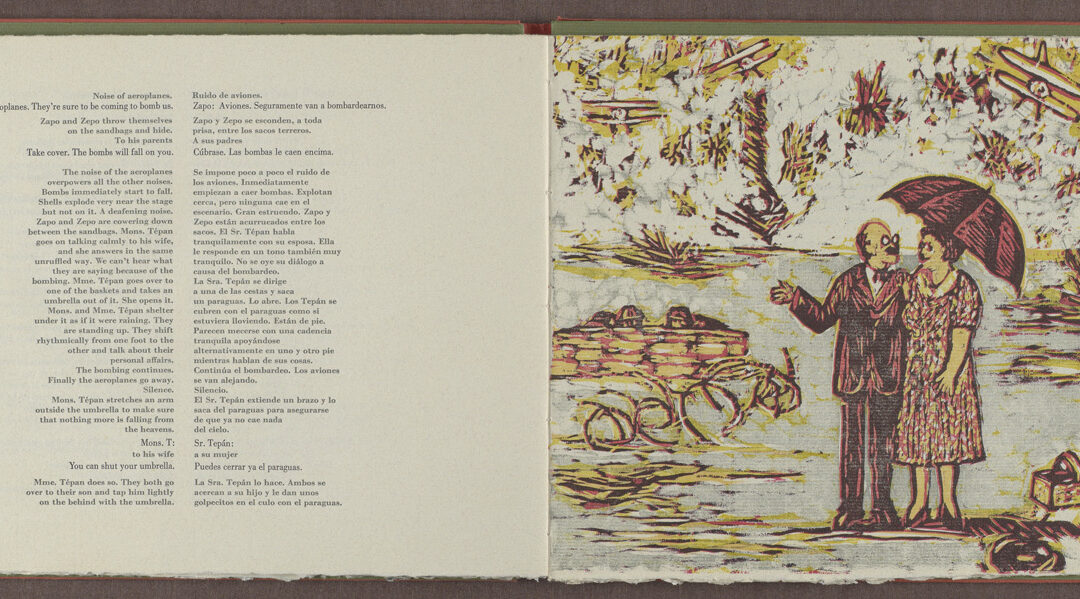Arrabal’s Picnic on the Battlefield is a metaphor for the stupidity of war. He undermines picnic expectations as the obtuse (but well-meaning) Tépans march onto the battlefield to entertain their son Zapo.
When the action begins, Zapo is surprised to see them and cautions them to leave because they are not soldiers.
Zapo: I’m sorry, but you really must go. You can’t come into a war unless you’re a soldier.
Mons. T: I don’t give a damn; we came here to have a picnic with you in the country and to enjoy our Sunday.
Mme. T. And I’ve prepared an excellent meal, too. Sausage, hard-boiled eggs – you know how you like them! – ham sandwiches, red wine, salad, and cakes.
Zapo: All right, let’s have it your way. But if the Captain comes, he’ll be absolutely furious. Because he isn’t at all keen on us having visits when we’re at the front. He never stops telling us: ‘Discipline and hand-grenades are what’s wanted in a war, not visits.’
The picnic ends abruptly with the deadly bursts of machine guns.
* Originally Pique-nique en campagne, the title was changed for American readers. The play is Aligned with the Absurdists, such as Beckett and Ionesco. Arrabal was a founder (among others) of the fringe theatrical collective Grupo Pánico, named after the god Pan, the inciter of panic and chaos. Günter Grass acknowledged that the play inspired the June 3rd picnic in Normandy in The Tine Drum. Also, entry for Cold Comfort Picnic on the Battlefield, June 1919
Featured Image: Siddney Chafetz’s Picnic on the Battlefield.
See Fernando Arrabal. Picnic on the Battlefield. In Guernica and Other Plays. Translated by Barbara Wright. New York: Evergreen 1961; Fernando Arrabal. Pic-Nic. With illustrations by Sidney Chafetz. London, 1967

